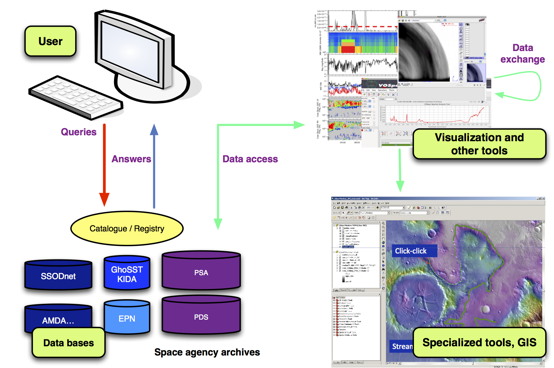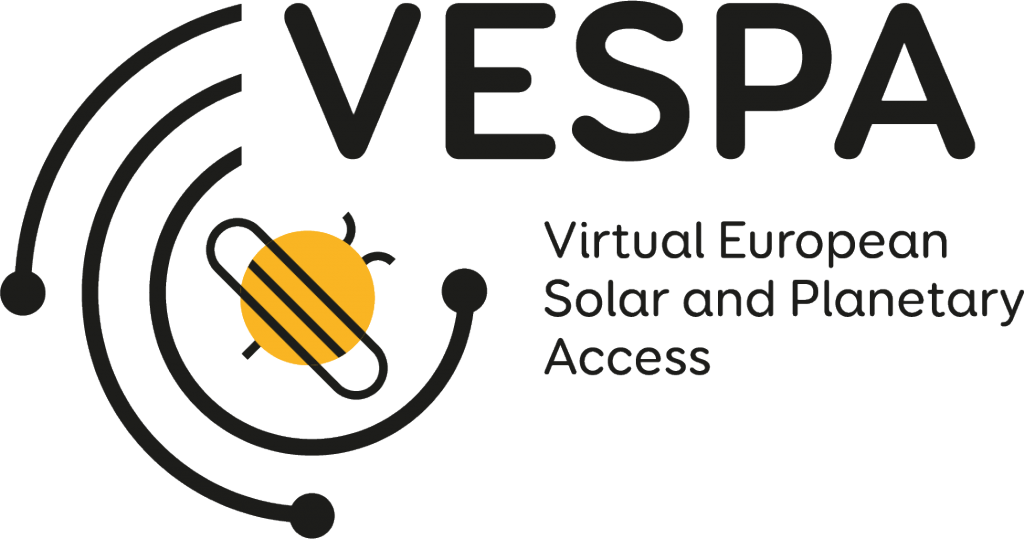VESPA (Virtual European Solar and Planetary Access)
VESPA is building a Virtual Observatory (VO) for Solar System sciences by adapting standard VO techniques and developing new tools and standards specifically designed for planetary science data.
Since its establishment in 2015, VESPA has installed over 50 datasets to a registry that can be accessed through a single interface, the VESPA Query Portal.

Users can search and access data services via the EPN-TAP data access protocol, which includes a set of parameters to describe the data characteristics, as well as the related acquisition and observing conditions. Data services are located and maintained by the research institutes that have created them.
VESPA’s EPN-TAP data access protocol is designed for a broad range of planetary data, including space-based, ground-based, experimental (laboratory) and simulated data. EPN-TAP can be applied to diverse fields, from surface imaging to spectroscopy, atmospheric structure, electro-magnetic fields, and particle measurements.
The European Space Agency (ESA) has implemented EPN-TAP on the Planetary Science Archive (PSA), which includes 10 million files from 30 years of space missions in Europe.
VESPA in Europlanet 2024 RI
During the Europlanet 2024 RI project, VESPA will:
- Install 30-50 new data services, focusing on derived data, and experimental data produced in other Work Packages of Europlanet 2024 RI
- Create connections between NASA’a Planetary Data System PDS4 and EPN-TAP dictionaries to make PDS metadata (from space mission archives) searchable from the VESPA portal and vice versa.
- Make Solar System data present in astronomical VO catalogues accessible, e.g. from the VizieR database.
- Connect the search system with even more powerful display and analysis tools, including a run-on-demand platform and Machine Learning capacities
- Support long-term sustainability by assisting data providers in maintaining their services and exploiting the EU-funded European Open Science Cloud (EOSC).
Examples of VESPA’s advanced query capabilities:
- Users searching in a methane lake region of Titan can retrieve the atmospheric conditions depending on season or altitudinal density and composition profiles;
- Users looking for auroral images at Jupiter can access observations in the low frequency radio range, as well as thermospheric models, upstream solar wind or magnetospheric conditions;
- Users looking for spectral observations of comets can access laboratory observations for various composition of ices.
Contact:
VESPA is led by the Observatoire de Paris and the deputies are Jacobs University (VA) and CBK PAN (JRA). There is input from INAF, CNRS, IWF OEAW, UPV/EHU, IASB-BIRA, UCL, DLR and SpaceFrog Design.
Links
Find out more about Europlanet 2024 RI’s other Virtual Access services and tools:
Back to Europlanet 2024 RI Homepage



